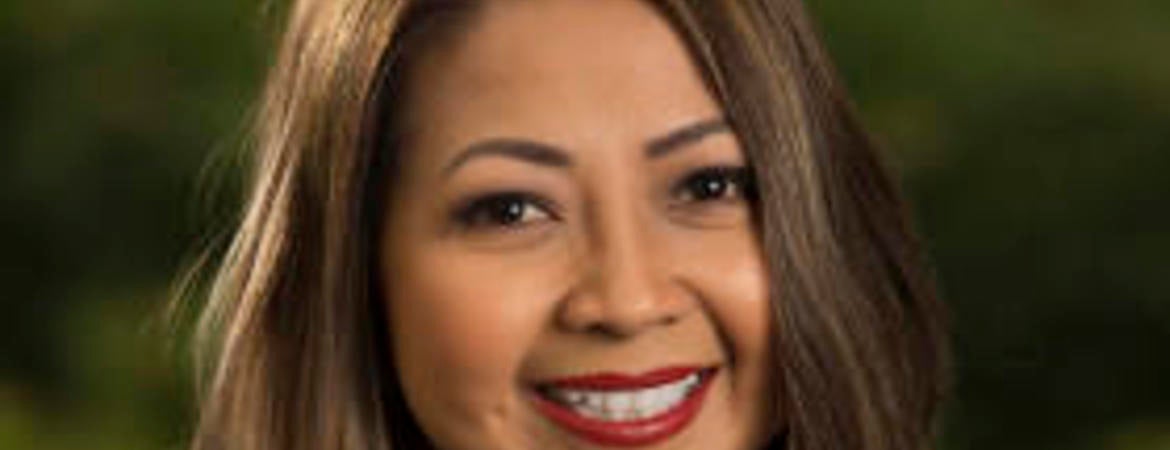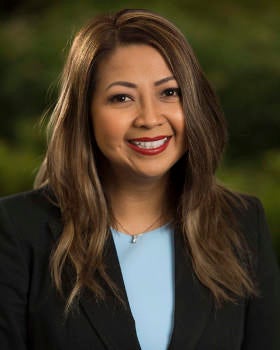When Mariam Lam was selected more than four years ago as UC Riverside’s associate vice chancellor and chief diversity officer, she began leading a small team focused on improving inclusivity on the campus.
The campus emphasized the importance of that work with the recent elevation of the role to an executive position. In September, Chancellor Kim A. Wilcox named Lam UCR’s first vice chancellor for Diversity, Equity, and Inclusion.
“I think it’s an important and timely message that the campus made this decision,” Lam said. “It’s reemphasizing our commitment to social justice, and to diversity, equity, and inclusion as we’ve practiced it on campus.”
In his announcement, Wilcox said the change had been under consideration for some time.
“While UCR has long been recognized nationally for its diversity, achievements in social mobility, and ethnic and gender programs, we recognize the need to both elevate and expand our institutional commitment to diversity, equity, and inclusion,” he said.
Lam joins the chancellor’s senior advisors, who include other vice chancellors, deans, and the provost, advising how the campus can advance its diversity mission.
“It’s important to have those diverse voices at the table when you make such decisions,” she said.
Lam has been with UCR since 2002 as a faculty member in the Department of Comparative Literature and Languages with a specialization in Southeast Asian studies.
Multiculturalism has been an important part of her work going back to high school, where as a Spanish and Vietnamese-language speaker Lam worked with English as a second language teachers. In college and as a scholar, she studied comparative literature, focusing on global literature, film, art, gender studies, and ethnic studies.
When she became chief diversity officer, Lam said she combined her theoretical training and studies with practical knowledge as an administrator, creating infrastructure to support equal opportunity institutionally across different constituency groups.
Lam said the Office of Diversity, Equity, and Inclusion’s work remains the same, but the title change has brought more attention to her team’s work.
Her role includes heading a wide range of initiatives and committees related to diversity, equity, and inclusion, and partnering with campus and community stakeholders.
The office is a key player in improving the campus climate by promoting inclusivity, building morale, and retaining staff and faculty members. Lam co-chaired a task force that Wilcox formed to review campus practices and recommend improvements.
Lam describes her team as a scrappy one, noting that since the office consists of 3.25 positions including herself, collaboration is key to their mission. That reinforces the idea that diversity is a campus-wide responsibility and results in more buy-in, she said.
“Our function is to partner with all of those senior leaders, middle management, and individuals from top to bottom to help facilitate their own agency and their ability to do this work,” Lam said.
Since June, when the Black Lives Matter protests spurred more conversations about race, Lam said her office has seen more departments and units asking for assistance with workshops or consultations on how to do better.
“That’s been very motivating to watch,” she said. “People are realizing that they have to step up.”
When Lam first took over the position, it was following a reorganization in which some of its functions moved to Human Resources.
The office began creating training modules and workshops customized for departments and units based on specific issues they raised. Her office has also developed programs that encourage students, staff and faculty members to take a more active role in improving inclusivity.
Through the Equity Advisor program, faculty members within their respective colleges or schools take leadership roles on diversity, equity, and inclusion issues including faculty recruitment and retention, pay equity, and mentoring.
The Graduate Student Association Diversity and Inclusion Academic Liaison, or DIAL, program offers resources for graduate students. The DIAL representatives receive training to act as liaisons on issues relating to sexual harassment, discrimination, and compliance.
The 11-year-old Chancellor’s Making Excellence Inclusive, or MEI, Diversity Certificate program for faculty and staff offers an eight-month course in which participants take part in workshops and discussion groups one Friday each month. A Graduate Division version of the program created four years ago spans the 10-week quarter and focuses on professional development for graduate students and postdoctoral researchers. They work on projects and are encouraged to implement ideas to improve diversity.
“It was such a great way to give the campus community members power to actually affect real change,” Lam said.





